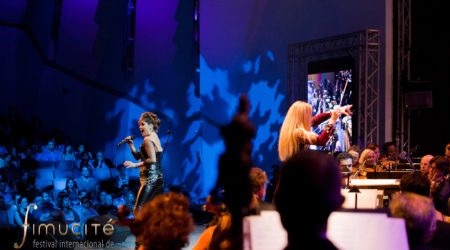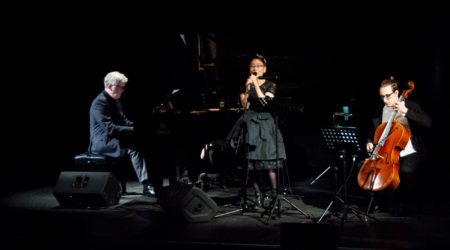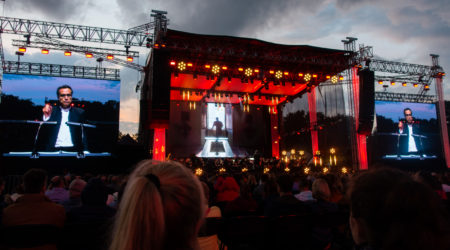One of the main guests of this year’s Krakow Film Music Festival was Scottish composer Craig Armstrong. The gala concert of this edition was held in honor of his film music, but also for the songs he has arranged. During the rehearsals of the gala, with singers and dancers practicing on stage together with the orchestra in the background, I had the privilege to talk to the composer, who has been composing for decades within, but also outside of the film industry. The interview was held on May 18, 2019, and we talked about the start of his musical career, his influences when he was a child and his love for choir music.
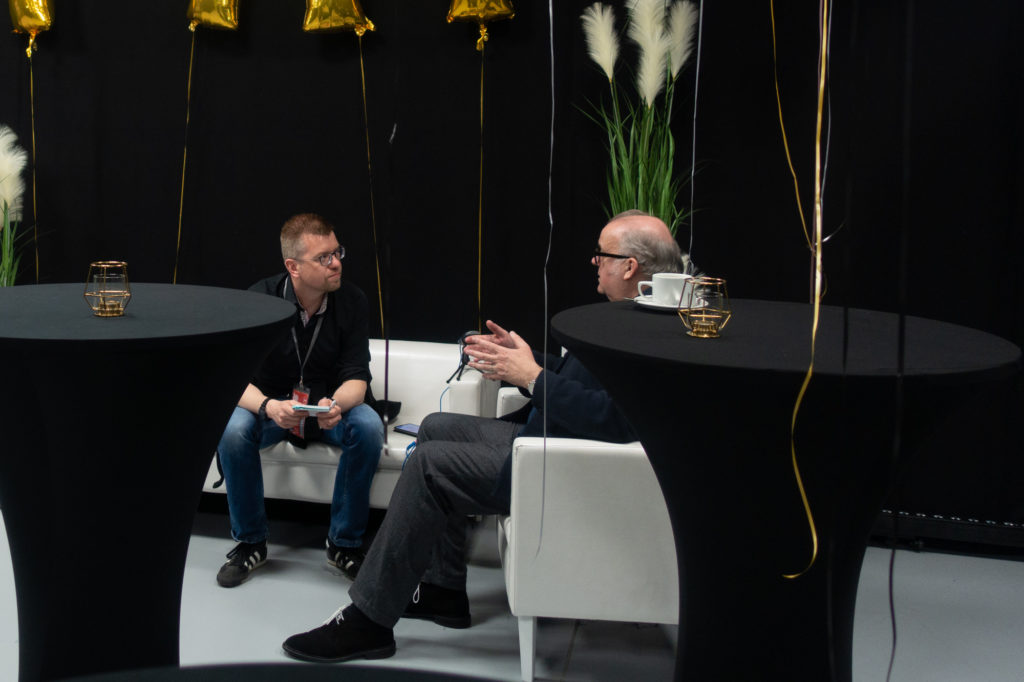
Anton Smit: To start things off, how did you get into the business of being a film composer?
Craig Armstrong: I started doing lots of music for theater in Glasgow in Scotland, where I live. There was a theater there called the Tron Theatre. I think I have worked for them, on and off, for about five years. We did lots of productions and one of the actors was Peter Mullan, who went on to make films like Orphans, The Magdalene Sisters and Neds. It was him that first asked me to do a short movie: He made a ten-minute movie and I did the music. My first big break was Romeo and Juliet for the more Hollywood type films, and that was through a lot of arranging work I had done. I had done lots of string arrangements for Madonna, U2 and Tina Turner. Director Baz Luhrmann heard that and then he asked me to be involved in the film. These two different parallel threads are how I got into doing film music.
AS: When I think about your music for films, a strong theme or a powerful track from your soundtrack albums come to mind. Is that something you work on first when you take on a new film project or do you approach it chronologically?
CA: The thing that happens quite a lot is that you get a script for the film, and quite often I read that before I see the film itself. That can give you a good idea of the atmosphere and the emotion of the film, and quite often I start writing before I have even seen the film. From that and from seeing the early bits of the film I try to get a piece of music that kind of reflects the core feeling of the film. That is my approach really. Usually, the script is very evocative, or say something like The Great Gatsby it is a very famous book. I think you know roughly the emotional journey of that film. That is how I start, so I start quite early. Often I start before I have seen the pictures.
AS: You do so many other things besides composing music for movies. Does that mean that images from a movie are not that important for you?
CA: I wouldn’t say that. I think that once you get the film, especially if you are working with directors like Baz and Oliver Stone. The picture, obviously, is a huge influence as well. I do write before I see the picture, but when I get the picture itself then I start working on that. It doesn’t preclude having some ideas before it.
AS: You have been writing music for 40 years now, as you have mentioned on a panel here at the festival. Do you still use the same method of composing, or has that changed a lot?
CA: I think for each film you can try different things, whatever your orchestration is, can make a big difference. If you are doing a film and you got a choir, for instance, that is a huge different texture to work with. I just did a film earlier this year where it was mainly synthesizers. I have an old collection of vintage synthesizers, so that was fun. I think that each film has its own idiosyncrasy. The way to write for them is very much dictated by the movie.
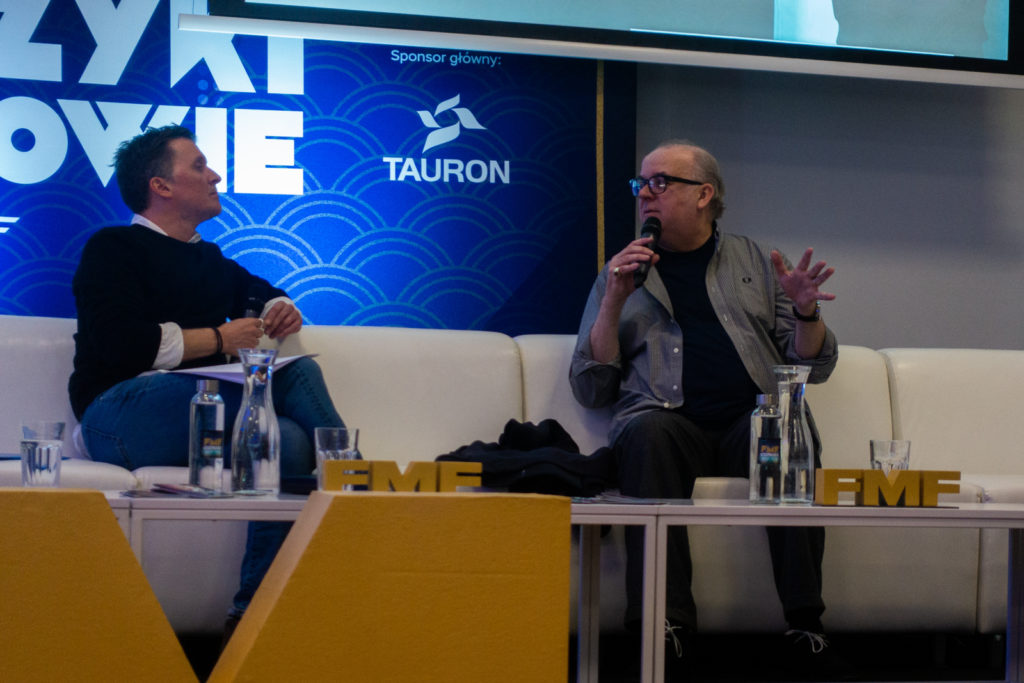
AS: Do you have any say in what kind of style you want to use for a movie? Is it your choice to do something with synthesizers or a choir?
CA: I think we are allowed to say that I think a film would be great for cellos, basses, whatever. The thing that is great about film is that you are part of this big family. It is a massive amount of artists working together. It is the scriptwriter, the people making the design, like Catherine Martin, the actors, cinematography is a huge thing, the direction, the music and the sound effects. A massive amount has to come together as a family of film making for a film to work. I think that is why when a film is really good, you know that everybody is working to the best of their ability. I like that factor in a film. It is part of a big collaboration. It is like being in a different family for a year, or a couple of years. It is very much like I am back to what I used to do when I did the theater work at the very beginning. That is also a sort of a close-knit family trying to make a production. Everybody is going towards the same goal. I think films are very like that.
It is very different when I write my own music, without film, it is a very different experience because you are on your own. There is no one to ask. With a film the director always has things to say. When you are writing your own music you are just left with your own opinion. It is very different writing classical music and solo albums than working for the movies. I enjoy both. I think I need both to feel complete as an artist.
AS: Since you have done so many movie projects, like writing for film, solo albums, working with artists like Massive Attack are there still genres of music left you like to explore?
CA: Although I work in different areas, classical and film, I would say that I got a very strong voice. You can tell whether I am doing an opera or doing a movie, I think you can tell that it is me working on it. One thing I really love to do is that I like to write music for a ballet. That is a sort of ambition that hopefully in the next few years I can try and scratch that itch. I think my music would be very complementary to dance. That is one little ambition that I haven’t tackled.
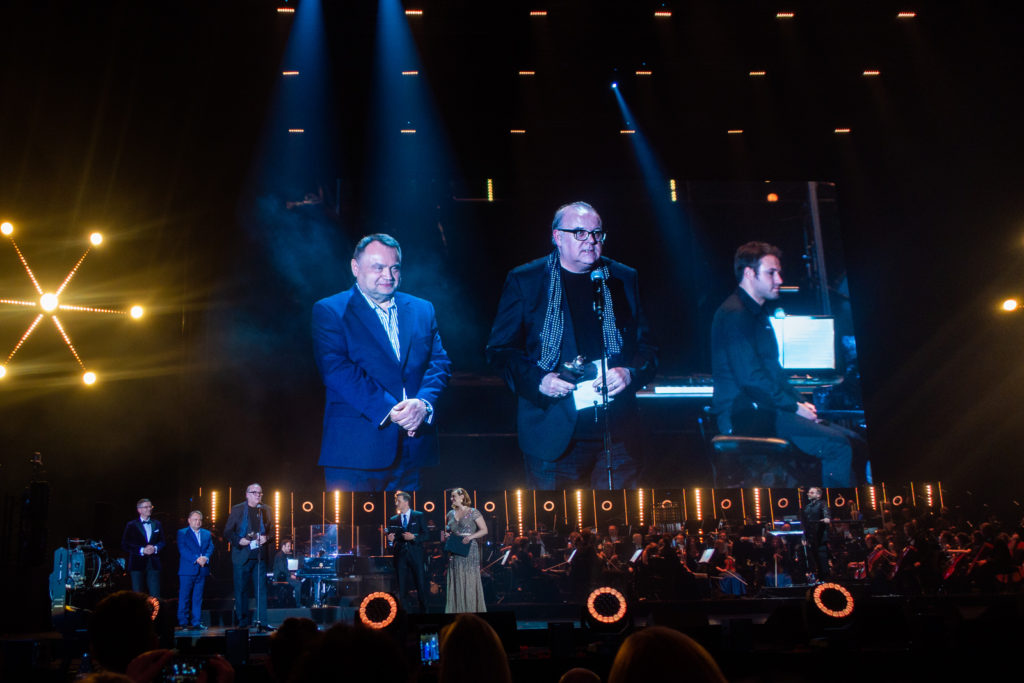
AS: What attracts you to compose music for a specific movie. What kind of features are you looking for?
CA: I think what I am best at is drama. Some of the films I have done outside that are quite romantic, and I am quite good at that. In saying that, we are working on a Disney movie, in the next three or four months, and that is a bit of a challenge, because it is a slightly different language: It is an animation for a start. Usually I stick to drama movies, because it is kind of the zeitgeist of how I write.
AS: So where does a movie like The Incredible Hulk fit in?
CA: The Hulk happened because when I was a kid, I was a big Hulk fan. So that was not a normal movie I would do. Maybe the director probably wished I hadn’t done it! It is purely that as a kid, I was obsessed with the Hulk. So when someone offered it to me, I jumped at it, but it isn’t in the mainstream of what I would do.
AS: One of the main things I like in your music are pieces that involve choir. What does a choir mean to you in your music?
CA: When I was a kid I went to church every Sunday in Scotland, right from being five up until sixteen probably. I think the hymnal music, and hearing everybody singing, I used to harmonize in the church to just sort of cheer myself up. I used to do a lot of different harmonies to it. That love of people singing, while every other thing, with a piano, oboe or guitar, a human being is going through another medium, whereas with singing there is nothing else to go through. It is made in a human being and it comes out. I think that is what is so special about it. A choir is great because you know you get sixty people, for Romeo and Juliet and Moulin Rouge we had like a sixty-piece choir, which is a pretty big choir. When you got all those people together making music, it is an amazing feeling. I should actually, you know, for my own music I should do an album with just choral. It is a special thing when you hear lots and lots of people sing. There is nothing like it, I don’t think. I mean it’s fantastic to hear an orchestra, but there is something special about a choir and when you put a choir with an orchestra, it is an amazing thing.
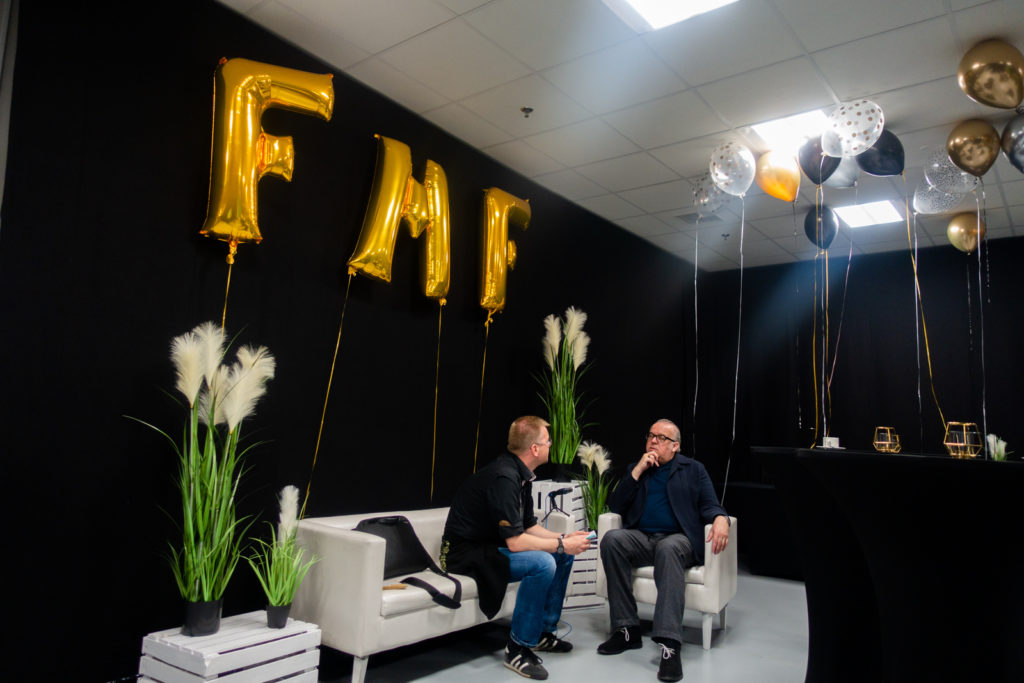
AS: As my final question, what are you looking forward to the most?
CA: I still enjoy writing. I have always got ideas for new things to write. Next year, I’m gonna be putting out a more classical album of works I have done, but haven’t been released yet. In terms of film I guess we just see what comes along. I still enjoy writing for film. Film, as I said in the talk earlier on, it is quite a new phenomenon really. I am also interested in a lot of younger composers where most of their work has visuals, but not visuals as in story-telling. I think that is a really interesting area as well. At the moment I would say that after this year I will be doing more solo work and more writing pieces without film. That is my plan.

